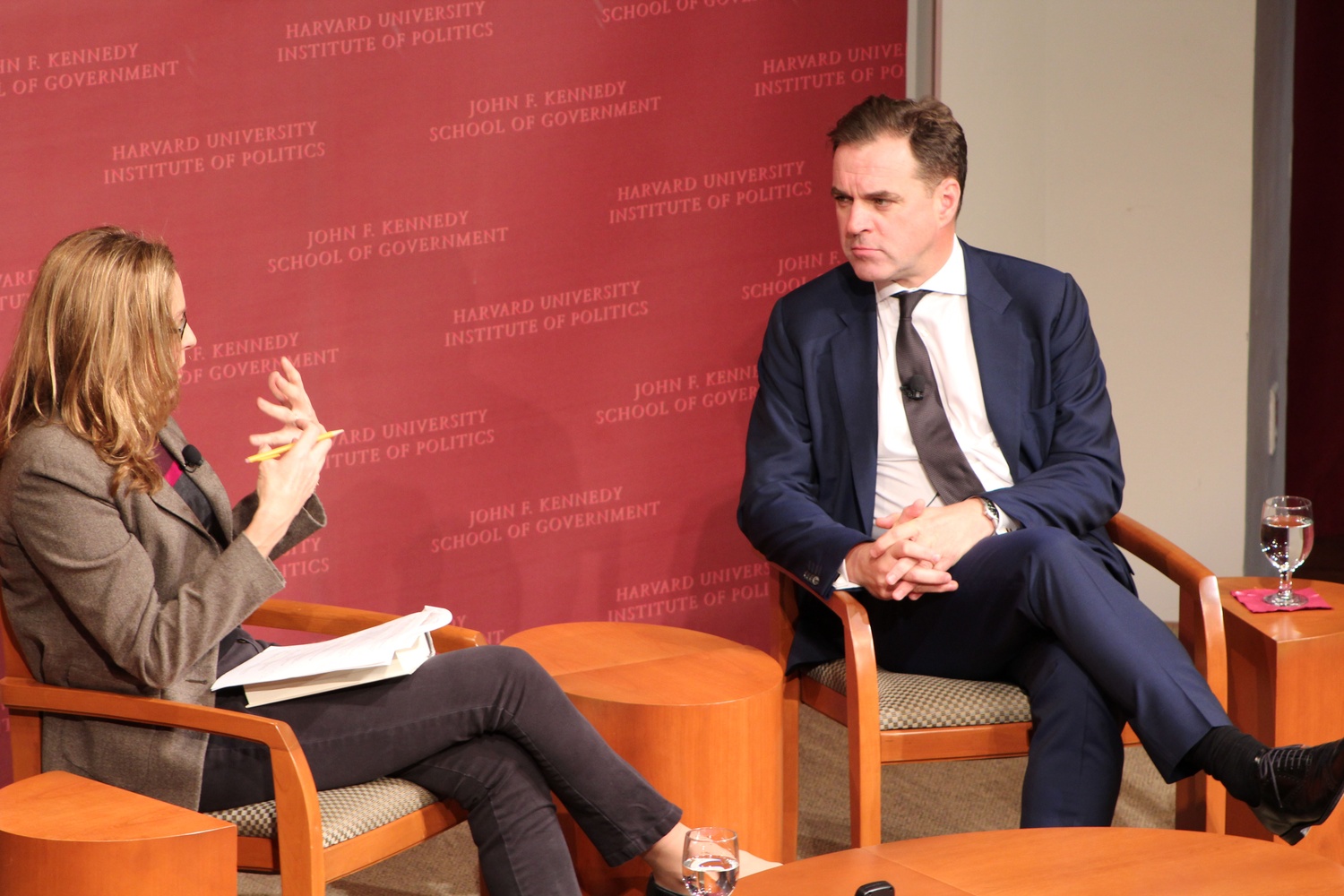
News
Harvard Researchers Develop AI-Driven Framework To Study Social Interactions, A Step Forward for Autism Research

News
Harvard Innovation Labs Announces 25 President’s Innovation Challenge Finalists

News
Graduate Student Council To Vote on Meeting Attendance Policy

News
Pop Hits and Politics: At Yardfest, Students Dance to Bedingfield and a Student Band Condemns Trump

News
Billionaire Investor Gerald Chan Under Scrutiny for Neglect of Historic Harvard Square Theater
Ferguson Discusses Politics and Kissinger Biography

Speaking to a large crowd at the John F. Kennedy Jr. Forum on Wednesday, History professor Niall C. Ferguson discussed the biography and political ideas of Henry A. Kissinger ’50.
Ferguson, who published the first volume of a biography on the former secretary of state in September, said last month that he will leave Harvard for Stanford’s Hoover Institution after what he said has been “12 wonderful years.” He plans to continue working on a second biographical volume on Kissinger as he moves to California.
At the event Wednesday, Ferguson said Kissinger’s private papers revealed that the former secretary of state and Harvard professor was very different from both what he expected and what previous historians had found.
“The key point about this book is that it’s certainly not the Henry Kissinger you’ve come to expect,” Ferguson said, adding that, even though he expected Kissinger to be an “American Machiavelli,” he realized that he was very idealistic during his early political career.
Answering a question on the parallels between Ferguson and Kissinger’s lives from event moderator Mary Sarotte, an associate at the Center for European Studies, Ferguson said his research was also motivated by an interest in Harvard’s history and the University’s role as a source of appointments in the federal administration.
“I think it was partly being here [at Harvard] that inspired me to do the book,” he said. “I was partly trying to teach myself about Harvard.”
Ferguson also spoke about the impact that Kissinger’s background in history had on his foreign policy ideas. The former secretary of state approached international relations as “applied history,” Ferguson said.
Simone E. A. Abegunrin ’18, who asked Ferguson about Kissinger’s potential views on the Iran nuclear deal after Sarotte opened the floor for audience questions, said the event helped her understand that Kissinger is “a human” and had “complex beginnings.”
Sarotte, whose work on the end of the Cold War relates to Ferguson’s research on Kissinger, said in an interview after the event that “it’s great to talk about historical themes with a broad audience.”
Abegunrin, referencing Ferguson’s departure from Harvard, described the University’s loss as the broader community’s gain.
“I’m grateful that we do have people like him, that we have this historical knowledge that can carry on this knowledge tradition outside of Harvard’s campus,” Abegunrin said.
Want to keep up with breaking news? Subscribe to our email newsletter.
